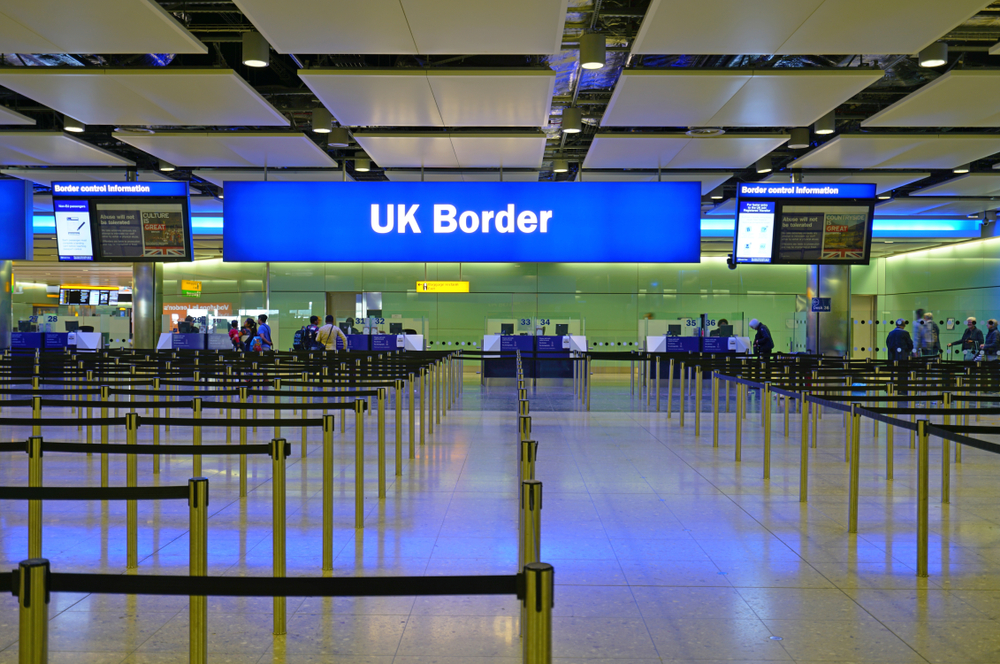Brexit ’should not affect’ halal standards, certification or accreditation: UK national authority
*This article has been corrected: Comments originally attributed to Matt Gantley have been corrected to reflect that they came from Amir Masoom.
*Edits have been made throughout the last para to clarify post-Brexit arrangements with regards Notified Bodies
DUBAI - As the date for Britain’s withdrawal from the European Union nears, national authority United Kingdom Accreditation Service (UKAS) has clarified that the process is likely to have no impact on halal standards and certification.
“Brexit shouldn’t affect halal standards and halal certification,” Matt Gantley, UKAS Chief Executive told Salaam Gateway on the sidelines of the International Halal Industry Forum held in Dubai on February 18.
Negotiations are still ongoing as to the terms of UK’s exit from the EU.
“Deal or no-deal I don't think it necessarily affects halal because it’s primarily a voluntary certification process,” said Gantley.
“It’s driven primarily by retailers or consumers who, when they buy a food product or a cosmetic product, look for that halal brand. The brand then seeks independent certification and then the certification body seeks accreditation to ensure that its processes are strong and consistent,” he added.
“It’s voluntary or market-driven, rather than as a regulator or a government saying these products must be halal. The European Union is not asking industry to apply halal. And so, with a no-deal, or deal situation there is no impact,” Gantley said.
RELIGIOUS SLAUGHTER EXCEPTION
Brexit is also not expected to impact the exception for halal and kosher slaughter that is permitted in the EU because UK has its own laws to deal with this, which specify: “You must stun all animals before you slaughter them unless an animal is being religiously slaughtered for halal or kosher meat.”
The Council of Europe’s Convention for the Protection of Animals for Slaughter and the European Union’s Council Regulation 1099/2009 provide that animals should be stunned before they are slaughtered.
These regulations also specify that Member States may allow exemptions from the stunning requirement to allow for ritual slaughter.
However, several European countries, including Sweden, Norway, Iceland, Denmark, and Slovenia, do not allow derogations from the general requirement of prior stunning. Most recently in January, the Belgian region of Flanders joined the growing list of European states to ban unstunned slaughter.
UNCERTAINTY AFFECTING BUSINESS
A no-deal Brexit means the UK will leave the EU on 29 March 2019, without any agreements in place about what their relationship would be like in future.
“Whether it will be a ‘hard exit’ or ‘soft exit’, people are concerned. We import so many things,” Dr Amir Masoom, interim CEO of UK certifier Halal Food Authority (HFA), told Salaam Gateway.
The uncertainty of what’s going to happen is affecting businesses.
“25 percent of our lamb is exported to Europe. We're not sure what is going to happen. People are looking at other markets as well because everyone is not clear. It is a big question at the moment. Everyone is discussing it," added Masoom.
POST-BREXIT ARRANGEMENTS
However, sector-specific deals, and a series of agreements are expected to come in place for certain services.
In a letter to its customers in October 2018, UKAS confirmed that its status as the UK’s National Accreditation Body will continue after the UK leaves the European Union.
It also listed main objectives to protect the interests of UKAS, of UKAS-accredited organisations and their customers. They are:
“ - The continuation of UKAS’ recognition as the UK National Accreditation Body under UK law.
- UKAS continues as a member of EA (European Accreditation), ILAC (International Laboratory Accreditation Cooperation) and IAF (International Accreditation Forum) in order to safeguard the European and international recognition of accreditation and accredited services.
- Mutual recognition of conformity assessment is factored into any new trade agreement between the UK and the EU.
- Accreditation is given due recognition in any new international trade agreements that emerge.”
The statement also said the EA has confirmed that UKAS can continue as a member during the transition period proposed until December 2020.
EA has also agreed to allow a two-year grace period for any member body that can no longer meet the membership criteria and to consider changes to the membership criteria to ensure that UKAS can continue as a member body beyond this date.
The recently published EA confirms UKAS’s ongoing membership of the EA in the event of the UK leaving the EU without a deal on the 29th March 2019.
The statement also confirms the continuing mutual recognition of UKAS accreditation by EA members where that accreditation is outside of the scope of EU Regulation 765/2008.
UKAS’ membership of the International Laboratory Accreditation Cooperation (ILAC) and the International Accreditation Forum (IAF) is unaffected by Brexit.
Although not applicable to halal certification or accreditation, further guidance regarding the status of Notified Bodies has also been published on the UKAS website.
(Reporting by Shalini Seth, Editing by Emmy Abdul Alim emmy.alim@refinitiv.com)
© SalaamGateway.com 2019 All Rights Reserved


Shalini Seth, White Paper Media